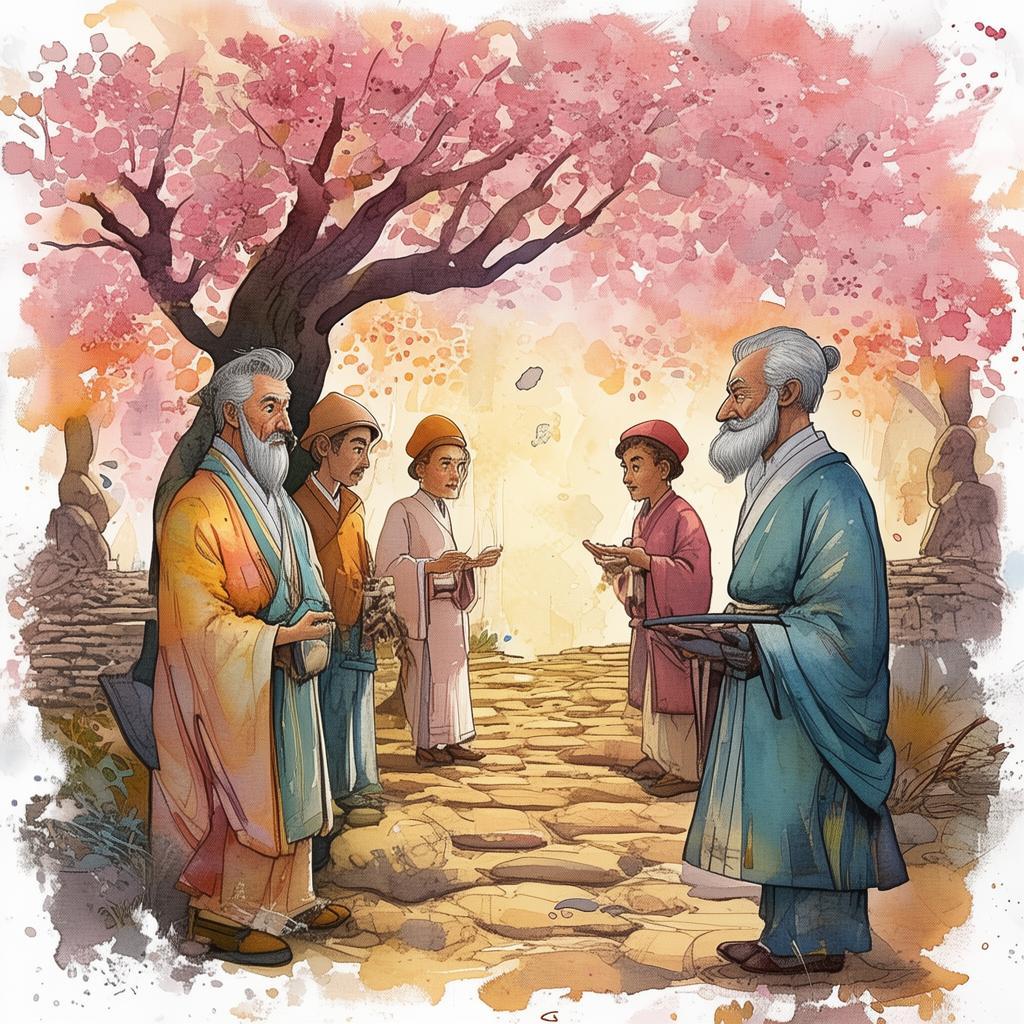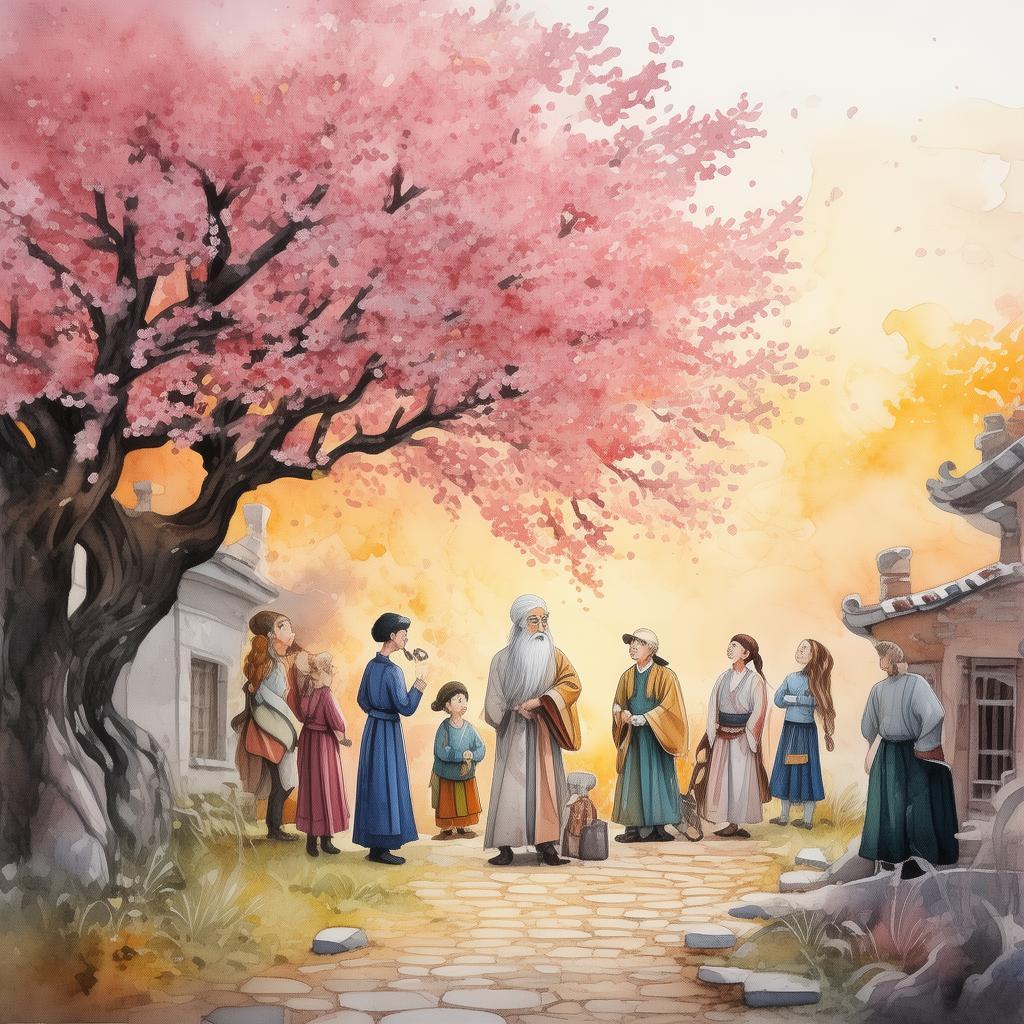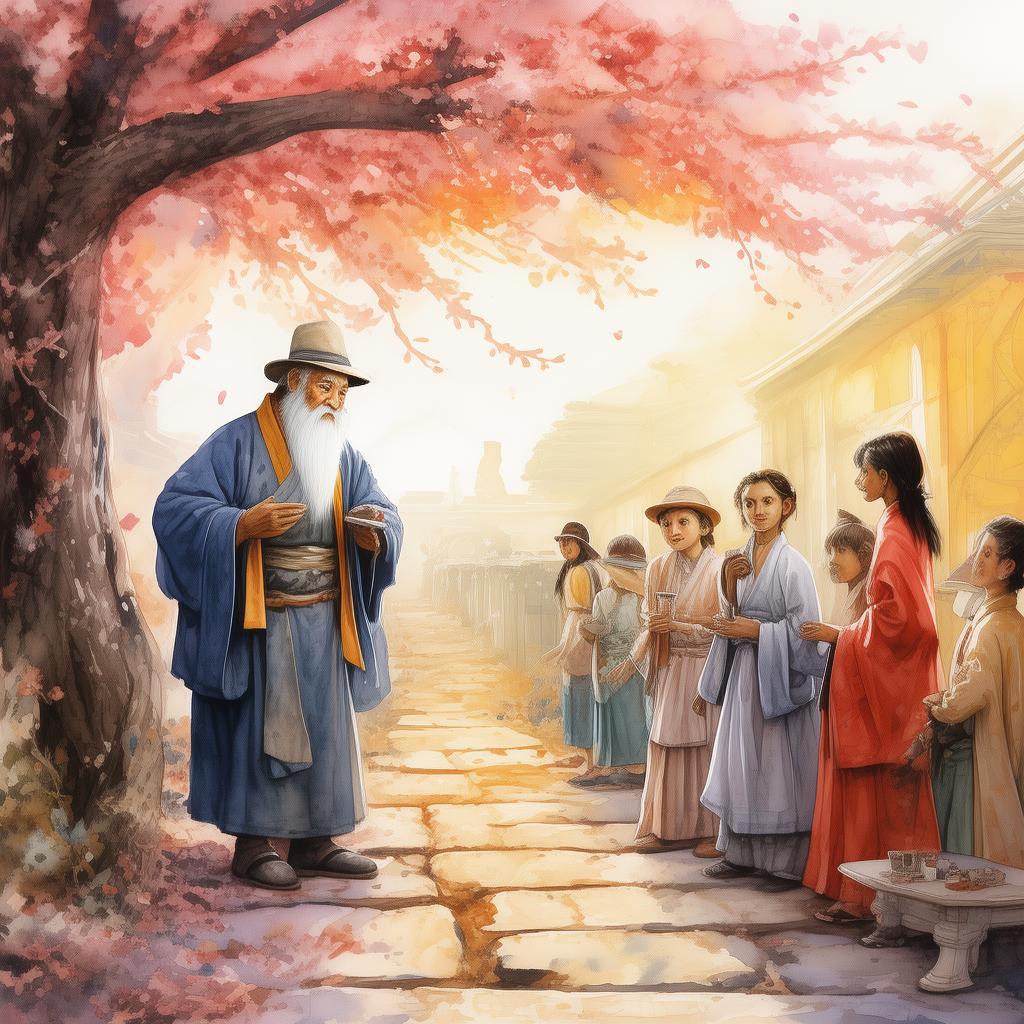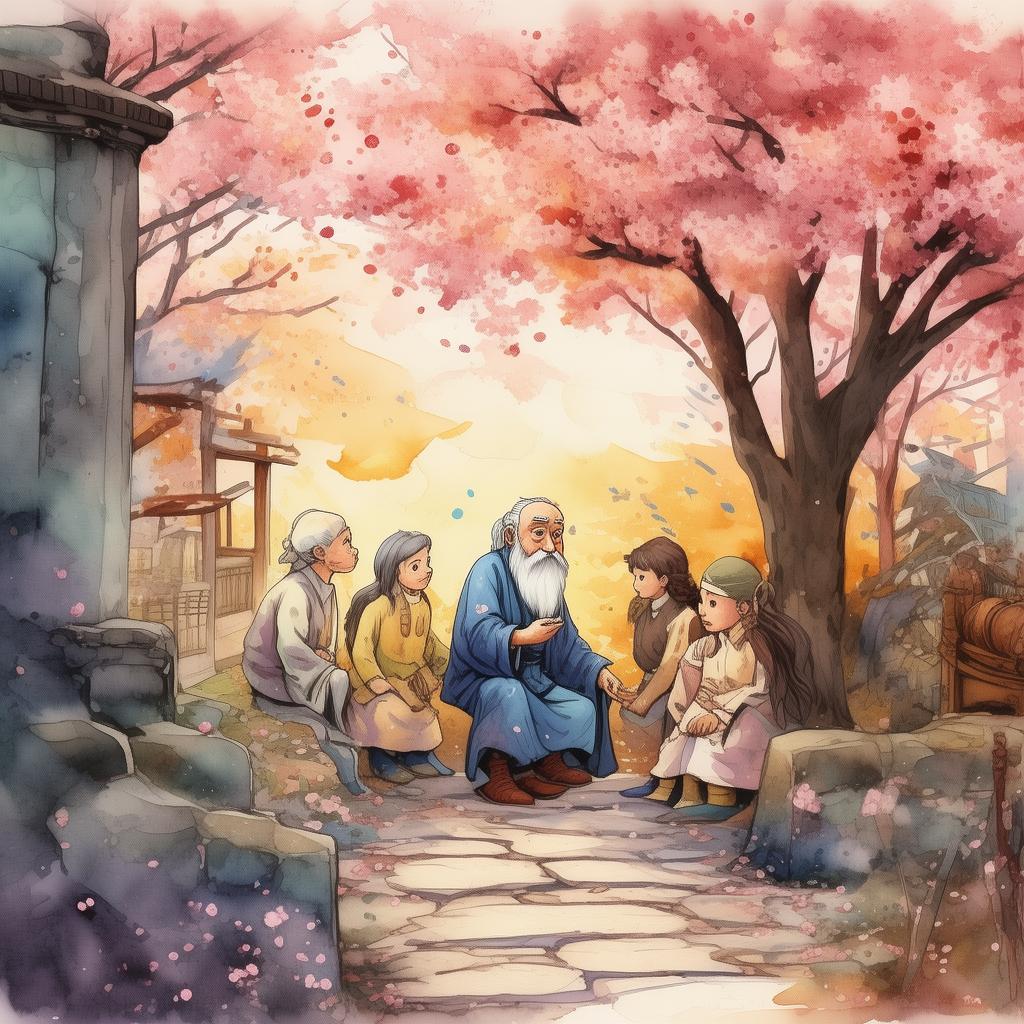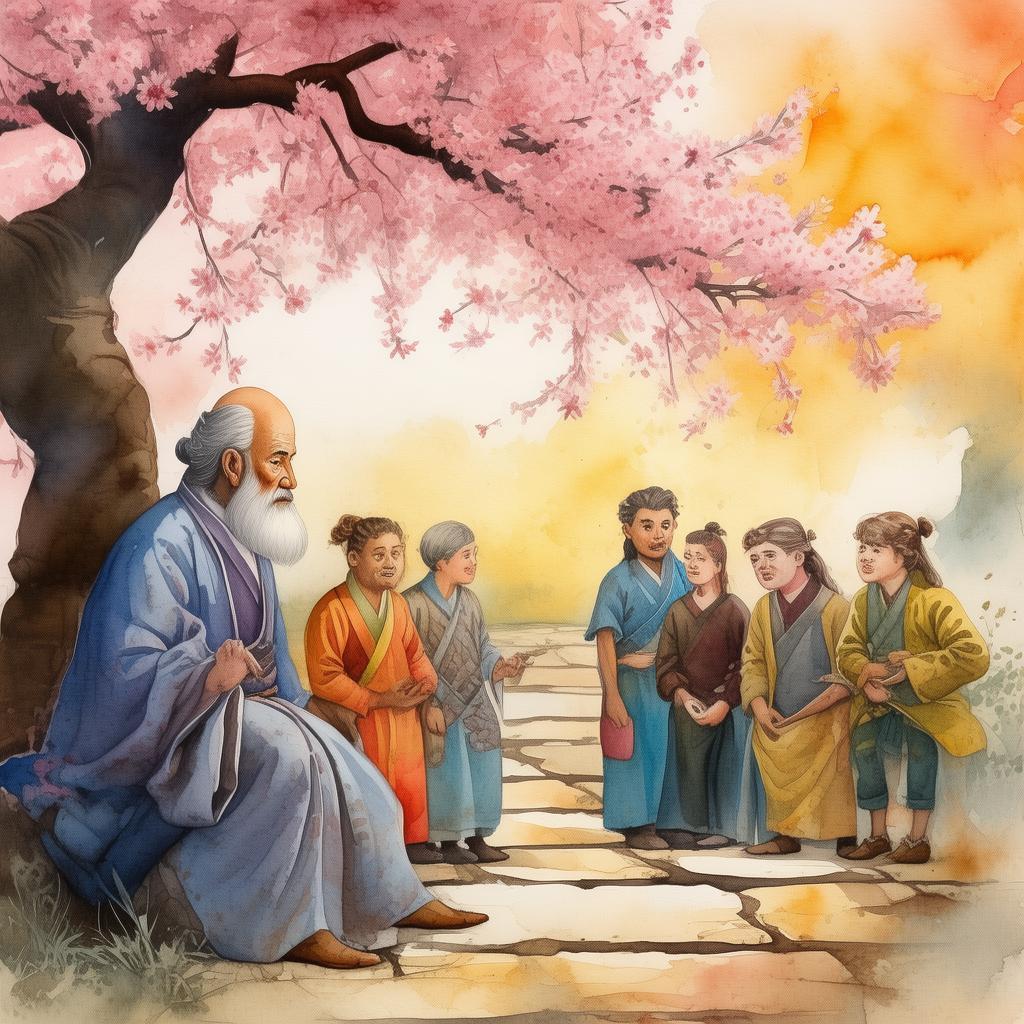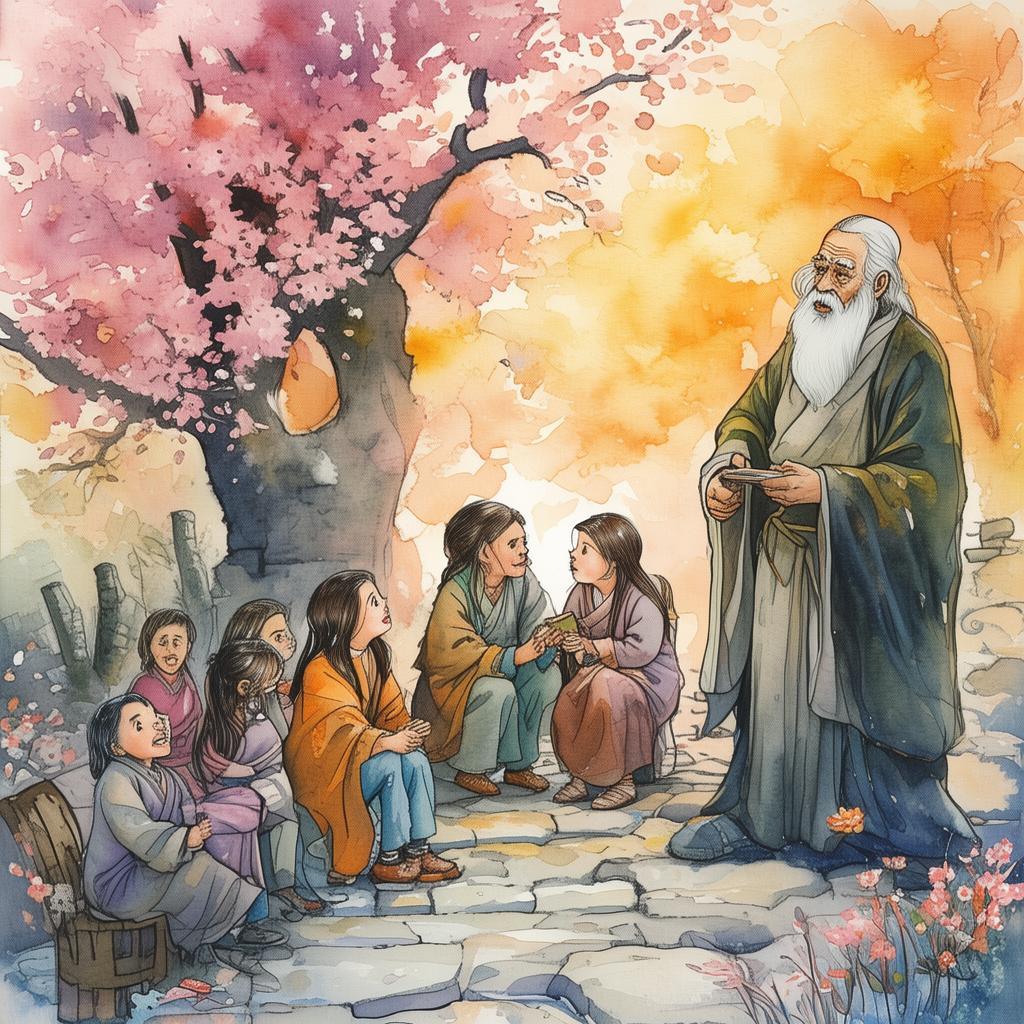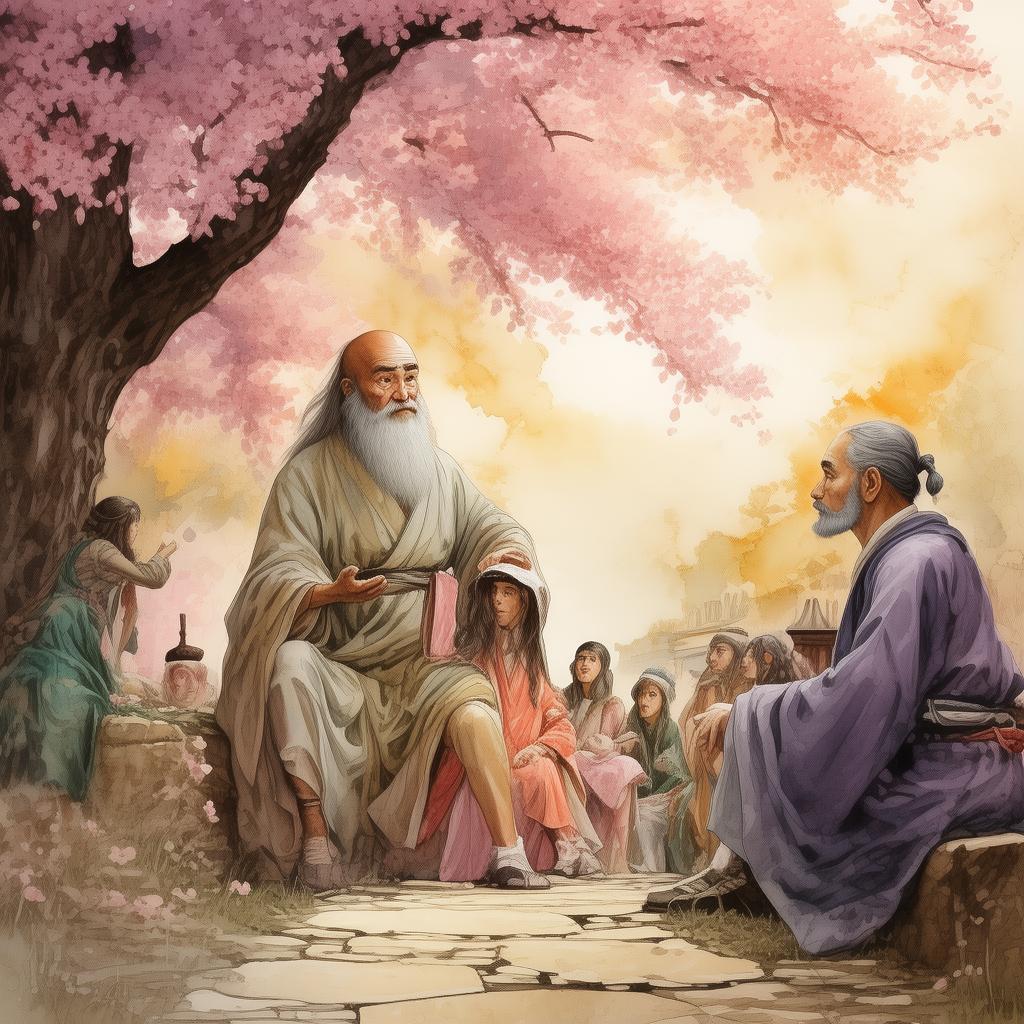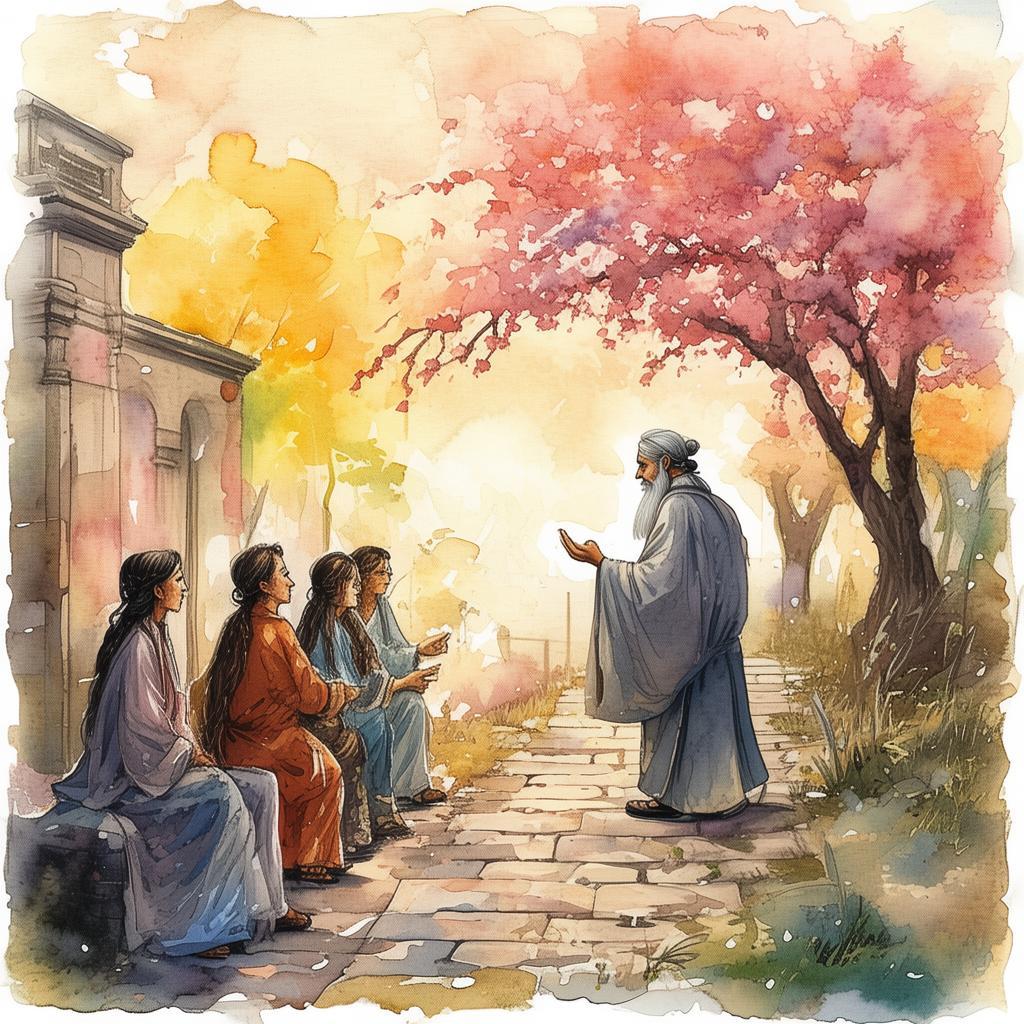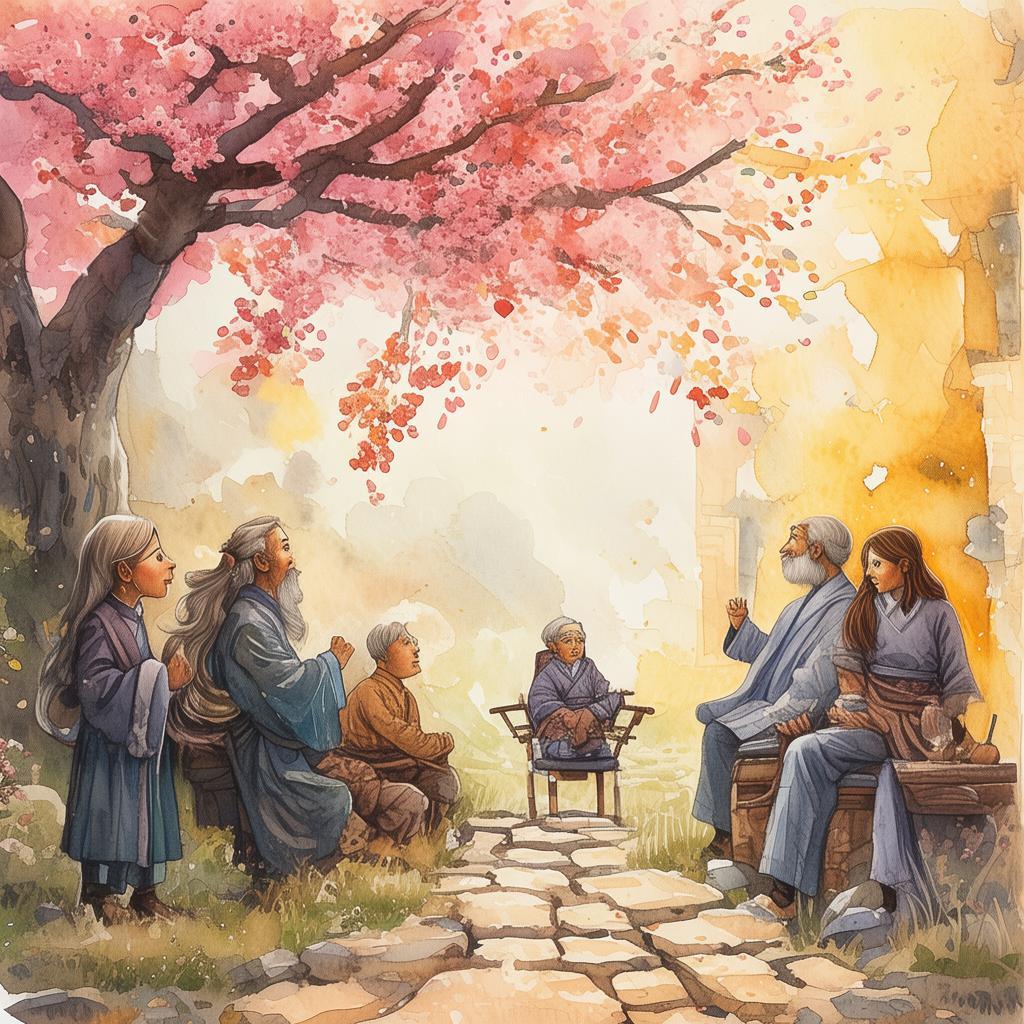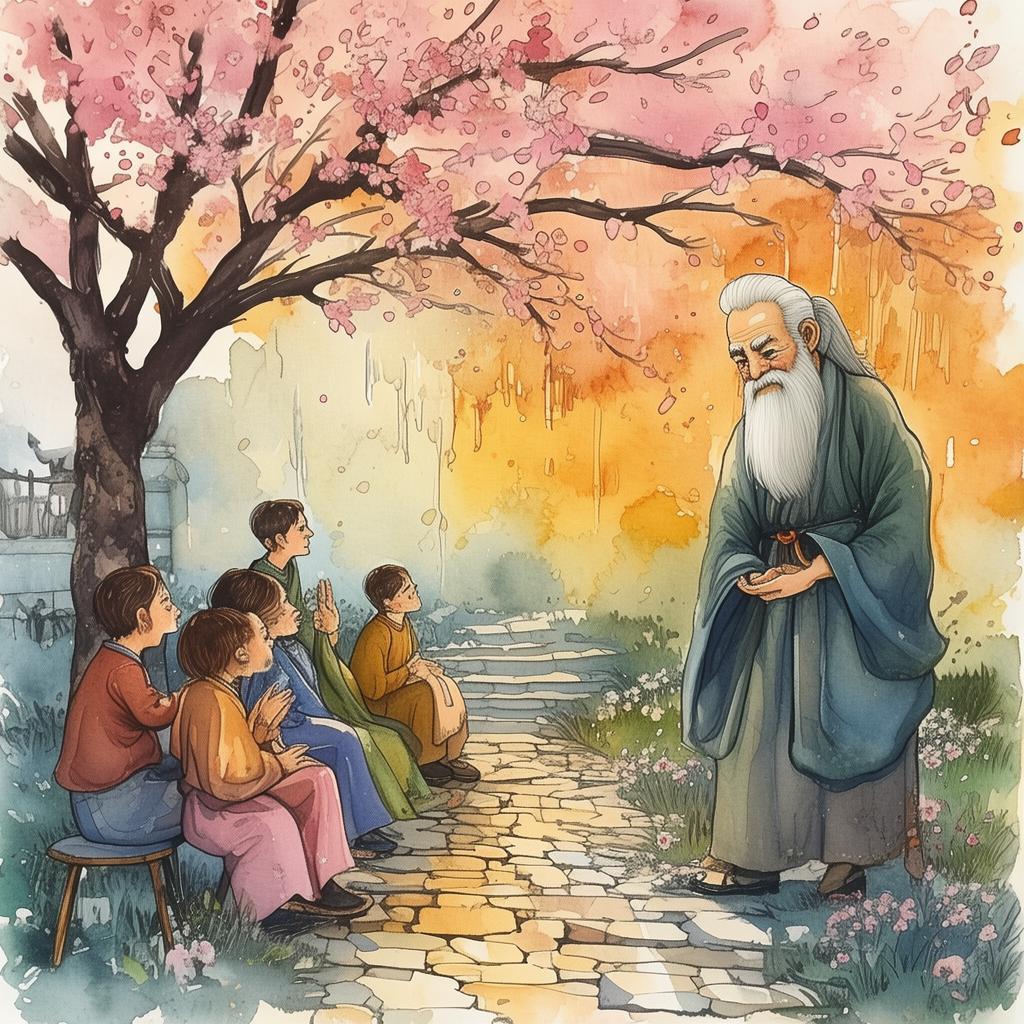The Lament of the Last Lyricist: The Vanishing Melody
In the heart of the ancient town of Liyuan, where the streets were paved with whispers of forgotten tales, there stood an old, cobblestone house. Inside, a solitary figure sat at a desk, his fingers tracing the worn-out pages of an ancient tome. He was Li Wei, a man who had spent his life preserving the vanishing idioms of his people.
The idiom in question was "The Vanishing Melody," a phrase that once brought harmony and life to the oral traditions of Liyuan. It was a melody that had been passed down from generation to generation, a melody that had accompanied the stories of Liyuan’s ancestors, a melody that was now fading into the void of time.
Li Wei's eyes glistened with a mix of sorrow and determination. He knew that the melody was not just a phrase, but a living part of the culture, a piece of Liyuan's soul. And so, he decided to embark on a journey to save it, a journey that would take him through the heart of the town's history and the depths of his own heart.
His first stop was the old library, a place that was a treasure trove of Liyuan's past. As he navigated the labyrinth of shelves, his fingers brushed against the spines of ancient books. Each book whispered secrets of the town's past, but it was one particular volume that caught his attention: "The Last Lyricist's Lament."
Opening the book, Li Wei found a story that mirrored his own. It spoke of a lyrist named Ming, who had once been the guardian of "The Vanishing Melody." Ming had traveled the land, collecting the voices and stories of the people, weaving them into the melody that had become the town's identity.
As Ming aged, he realized that the melody was fading, and with it, the town's heritage. He embarked on a final journey, seeking someone who could take over the mantle of the lyrist and keep the melody alive. It was Ming's last wish that Li Wei found this person, and it was this quest that would define Li Wei's life.
The next day, Li Wei set out on foot, the old book tucked under his arm. His journey took him through the lush mountains surrounding Liyuan, past the rivers that sang ancient lullabies, and through the fields where the wind carried the whispers of forgotten songs.
During his travels, Li Wei encountered various characters, each with their own connection to "The Vanishing Melody." There was the old fisherman, who played the melody on his lute every night to calm the waves; the child who sang the melody in the markets, unaware of its true significance; and the blind musician, who could only remember the melody in fragments.
As Li Wei listened to their stories, he realized that the melody was not just a musical composition but a collective memory, a piece of the fabric that wove the community together. It was a reminder of the shared history and the unspoken bonds that connected the people of Liyuan.
One evening, as Li Wei sat by a campfire, he composed a new melody, combining the elements he had heard from the townsfolk. The melody was a tribute to the vanishing idiom, a way to keep the memory alive. As he played it, the people around the fire were transported back to a time when the melody was the heartbeat of Liyuan.
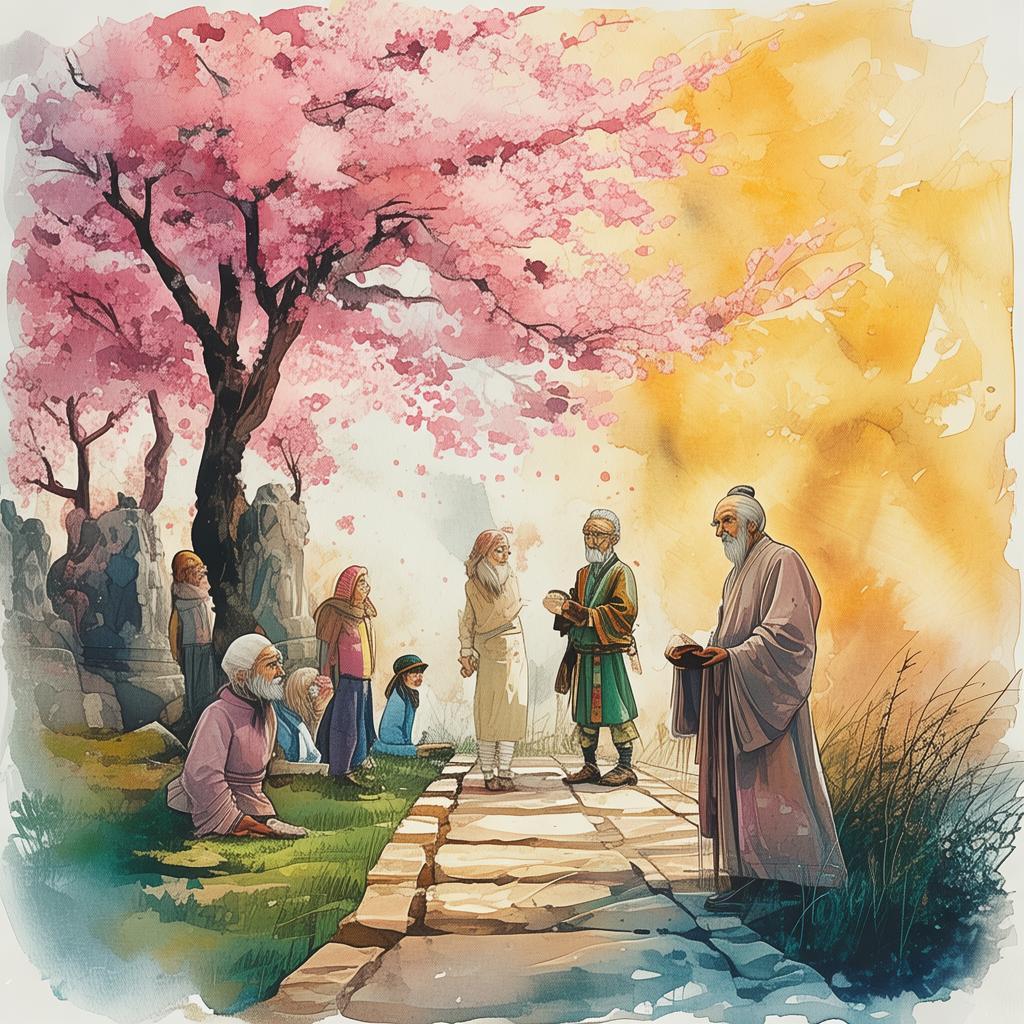
Word of Li Wei's journey spread throughout the land, and soon, others began to join him in his quest. They came from all walks of life, each bringing their own talent and passion for the melody. Together, they formed a chorus, a living embodiment of "The Vanishing Melody."
As the years passed, Li Wei and his chorus performed in every corner of Liyuan, bringing the melody back to the people. The once-fading idiom now thrived, a testament to the power of oral tradition and the resilience of the human spirit.
In the end, Li Wei realized that the true guardian of "The Vanishing Melody" was not just him or Ming, but the community itself. The melody had been reborn, not as a relic of the past, but as a living, breathing part of the present and future of Liyuan.
And so, as he sat at his desk one final time, Li Wei knew that his mission had been completed. "The Vanishing Melody" would never truly vanish, for it had become a part of the collective consciousness of Liyuan. It was a melody that would continue to be sung, a memory that would never be forgotten.
✨ Original Statement ✨
All articles published on this website (including but not limited to text, images, videos, and other content) are original or authorized for reposting and are protected by relevant laws. Without the explicit written permission of this website, no individual or organization may copy, modify, repost, or use the content for commercial purposes.
If you need to quote or cooperate, please contact this site for authorization. We reserve the right to pursue legal responsibility for any unauthorized use.
Hereby declared.
